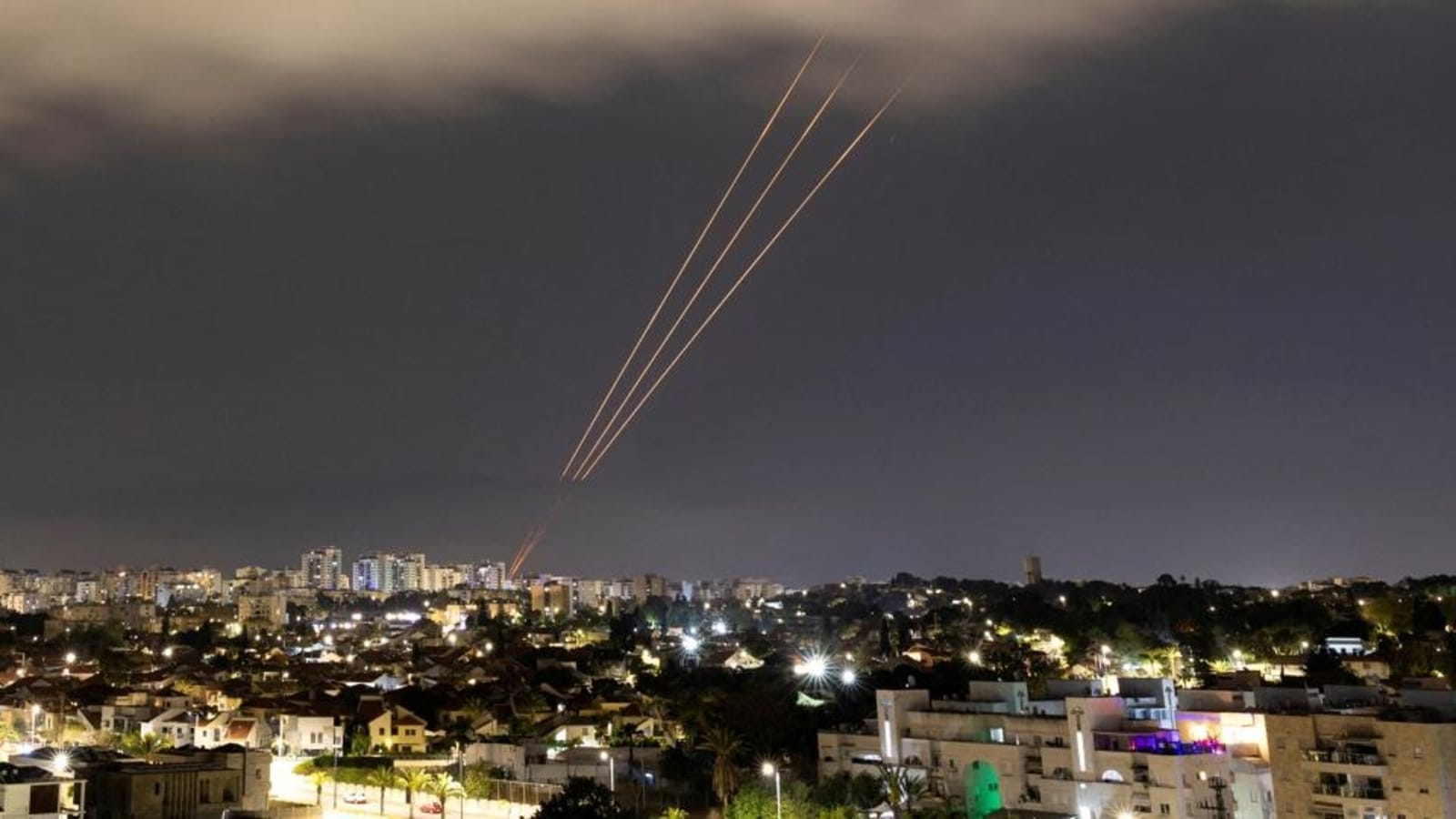latest news
Latest News Headlines for Today | Tamil News | Uk News Tamil 31.07.2021

latest news
Atiq’s sons to be interrogated over missing Beretta pistol used in Umesh Pal murder

Prayagraj police are preparing to interrogate the sons of the late Mafia-politician Atiq Ahmed, Ali and Umar, currently held at Naini Jail and Lucknow Jail respectively, regarding the whereabouts of a missing Beretta pistol allegedly used in the murder of Umesh Pal.

During a police raid on March 21, 2023, a sophisticated foreign-made Colt firearm was discovered in Atiq’s office, alongside other firearms and ammunition. Subsequently, British Bulldog and Walther pistols also were recovered from Atiq’s son Asad Ahmed and his associate Ghulam after they were killed in an encounter in Jhansi on April 13, 2023.
However, the Beretta pistol remains unaccounted for, prompting police interest in its retrieval. Ali and Umar will now face questioning concerning the missing pistol and the origin of the firearms found.
Sophisticated firearms, among them a rifle used by the assailant Sabir, who is rewarded with ₹5 lakh, were utilised in the murder of Umesh Pal and his two police guards. Additionally, Asad used an automatic pistol during the incident.
Following the incident, police teams unearthed a substantial cache of firearms and ammunition from Atiq’s partially demolished office at Chakia, which included a colt pistol among other seized firearms. Moreover, just before Atiq and Ashraf were killed on April 15, another Colt pistol was recovered from a deserted location in the Kasari Masari area. This discovery also yielded ammunition, including cartridges of Pakistani origin.
Atiq in his statement had also mentioned that the same pistol was utilised in Umesh Pal’s murder, a fact corroborated by ballistic reports.
Police officials said that Atiq’s gang-maintained contacts with arms smugglers who provided foreign-made firearms. These smuggled firearms, originating from Pakistan, were reportedly dropped by drones near the Punjab border. Investigations into this aspect of the case are ongoing, the officials added.
latest news
Eye on the Middle East | The game of deterrence between Iran and Israel has changed

Nobel Prize-winning economist Thomas Schelling defines deterrence as preventing an adversary from any undesirable action by imposing a credible fear of consequences. The credibility of the threatened consequences is married to the actual ability to carry it out, should the adversary continue to act in an undesired way. When this ability is under question, even if the adversary’s action continues, deterrence fails. This failure is, in turn, associated with the red line that a state has set for its threatened consequences to be triggered. Hence, red lines also create commitment traps.

Iran’s attack on Israeli territory on April 13, crossed Tel Aviv’s red line. Until it reciprocates (if it does), it is Israel that is caught in a commitment trap and is staring at deterrence failure.
In the Middle East, the most famous red line in recent memory was the one set by Barack Obama in 2011: if Syria’s Bashar al-Assad employed chemical weapons amidst the growing civil war, it would cross the United States’ red line and draw “enormous consequences”. However, the Syrian Arab Army went ahead with a devastating attack on a rebel-held suburb in Damascus using Sarin gas — one of the world’s deadliest nerve agents — killing 1,400 people. The United States failed to match the level at which it had threatened consequences, looking to avoid a direct war with Syria; “The President blinked”, as David Ignatius of The Washington Post later said.
In the decade since, the red lines in West Asia have been hard to set, as the theatre of conflict features a diverse set of armed actors including Iran’s formidable paramilitary, the Islamic Revolutionary Guard Corps, and the armed proxies it trains and sustains. The large presence of the IRGC in Syria and Iraq (among Iran’s oldest regional allies, notwithstanding bilateral complications) has historically made the IRGC a plump target for Israeli air action allowing Tel Aviv to increase costs for Tehran, without direct engagement.
Since Iran itself prefers to keep the IRGC’s extraterritorial activity discreet, an Israeli attack on senior IRGC officials that Tel Aviv itself does not overtly claim sets the dynamics of deterrence. Iran is forced to respond indirectly — choosing other pressure points, such as proxy-led attacks on the forces of Israel’s main backer — the United States. Moreover, Israel itself has long conducted direct (on Iranian soil) and covert (with plausible deniability) attacks on Iran through cyber-warfare (Stuxnet in 2010, which scrambled Iranian computer networks linked to its nuclear programme) and assassinations of nuclear scientists like Mohsen Fakhrizadeh in 2021 (as The New York Times reported), among other means. Hence, both Iran and Israel have historically preferred a cat-and-mouse approach with plausible deniability, without setting overt commitment traps.
The escalation ladder
The Israeli attack on the IRGC on April 1 then was not a substantial step up but rather, it was the damage caused to the Iranian consulate in Syria during the attack that gave Tehran new rationale to declare its red-line, especially in the face of recent Israeli rhetoric calling to take the fight directly to Iran.
Through Iran’s lens, the Israeli action could be characterised as a higher-rung move in the escalation ladder — stepping out of the cat-and-mouse mode of engagement. Iran’s response, in turn, has been at a higher rung on the escalation ladder — over 200 drones and ballistic/cruise missiles launched directly at Israel. The actual damage caused and the impressive effectiveness of the combined air defence are irrelevant. As India’s former Ambassador to Israel Navtej Sarna said in a recent interview, it was meant to be more of an Iranian statement than an attack. That Iran sought to maximise spectacle is now widely recognized in analytical commentary. However, the step-up in the escalation ladder was unarguable.
Next, for Israel, which has not suffered a direct attack on its soil by another state for decades, Iran’s unprecedented move was quickly declared as a fresh breach of Tel Aviv’s red line, and effectively a declaration of war. Rhetoric aside, if Israel responds by using its older modus operandi, it is still a step down. Nothing short of a direct overt attack on Iranian territory will match the rung on the escalation ladder at which the Iranian swarm attack was set.
Fighting through proxy
As an earlier column highlighted, Iranian proxy attacks against US bases (especially in Iraq) have largely ceased since February. While in the last few months, Iran has kept up indirect back-channel communication with Washington, it took special care to give Washington room by waiting 13 days before retaliating against Israel.
The United States has responded with a preference for military de-escalation, being quick to assert that it will not support Israel in a direct war with Iran, and coaxing Israel to view the successful air defence as victory in itself. No matter the circumstances, such an over-commitment of no military support by Washington to Tel Aviv is in itself unprecedented (coming on the back of the now six-month-old war in Gaza which has killed almost 34,000 people), with the United States preferring fresh economic sanctions against Iran instead. Washington’s position is clear — it seeks to impose costs on Iran while steering clear of military entanglement — a position that may arguably be expected to continue under a possible Republican (read Trump) administration in the future.
On the other hand, regional Arab states historically hostile to Iran are currently in a detente with Tehran; this itself followed increased engagement with Israel (before October 7).
Arab states now have a low appetite for fresh military conflicts especially amidst new priorities to economically diversify. The Arab response to the Iranian strike was noteworthy: Saudi Arabia, along with UAE, Qatar, Egypt, Bahrain, Oman, Kuwait, Iraq and Jordan, all expressed “concern at escalation” and called for “restraint”. While Saudi Arabia reportedly assisted in the Israeli defence against Iranian drones and missiles by providing intelligence, Riyadh was quick to downplay its role subsequently, showing continuing Arab discomfort with new military engagement. On the other hand, as a previous column showed, Israel prefers drawing in Arab states by credibly playing up an Iranian threat, and decreasing the Arab-Israeli gap caused by the Gaza war.
Also read: Eye on the Middle East | Amidst the Iran-Israel escalation loop, India is not spoilt for choice
Thus, a combination of new geopolitical priorities in the strategic calculus of both the United States as well as regional Arab states, with the fatigue caused by the Gaza war, leaves Israel with low diplomatic backing for a same-rung response.
Indeed, the Israeli war cabinet has indicated that it reserves the right to respond with its choice of time and place but does not want a wider regional war. Such language, while loaded with escalatory potential, shows that Israel is now considering responses other than the one which would directly match Iran’s attack on Israeli soil, a response not on the same rung. Essentially, Iran has drilled unprecedented holes in Israel’s deterrence, even if by just six or seven projectiles out of over 200, and thrown the plausible deniability approach out the window. Hence, whatever Israel’s response, the Middle East is at a watershed moment.
Bashir Ali Abbas is a research associate at the Council for Strategic and Defense Research, New Delhi, and a South Asia Visiting Fellow at the Stimson Center, Washington DC. The views expressed are personal.
latest news
10 lowest IPL totals of all time

-

 latest news2 months ago
latest news2 months agoWhy The U.S. Is Getting Serious About UFOs
-

 YAHOO NEWS3 months ago
YAHOO NEWS3 months agoHomeowner uses ‘one of the oldest forms’ of construction to build incredible fire-resistant house that could withstand the next major blaze
-
Guardian3 months ago
Precipice of fear: the freerider who took skiing to its limits | Skiing
-
Guardian2 months ago
The week in audio: Why Do You Hate Me?; Patient 11; Theory of Everything: Not All Propaganda Is Art – review | Radio
-
Guardian2 months ago
FA Cup roundup: Leeds beat Plymouth, Coventry set up Maidstone tie | FA Cup
-

 Uncategorized3 months ago
Uncategorized3 months ago(1) 7 Day Prayer Miracle
-

 Uncategorized3 months ago
Uncategorized3 months agoSending money to North Korea was risky – now it’s harder
-

 latest news3 months ago
latest news3 months agoBBC World News Bangla আন্তর্জাতিক সংবাদ। Today 26 Jan”2024 International Banglanews আন্তর্জাতিক খবর












